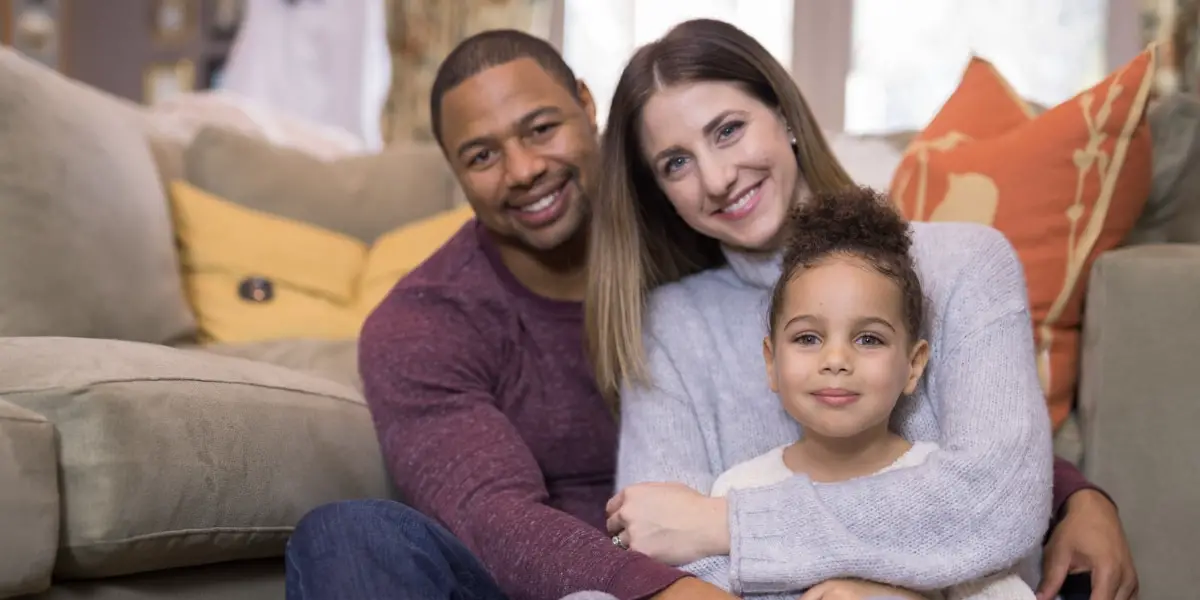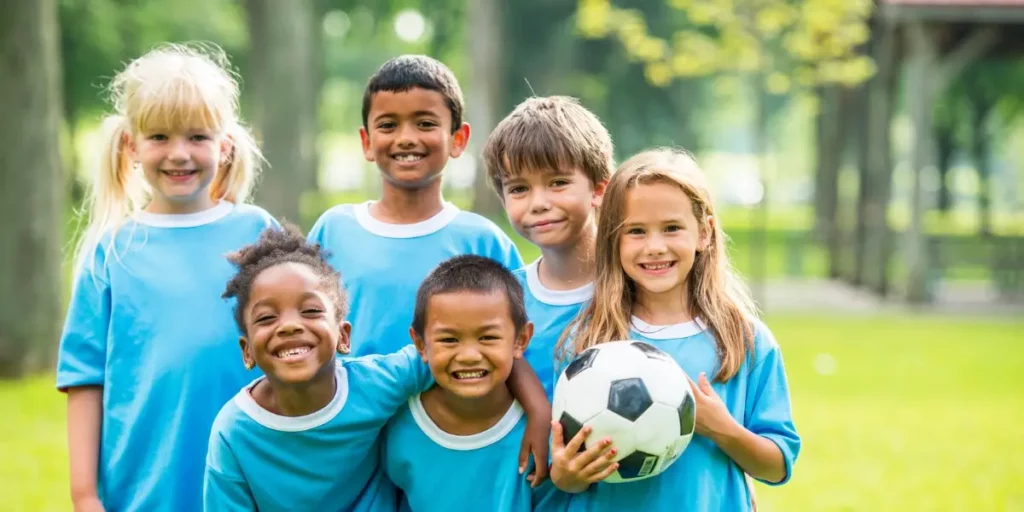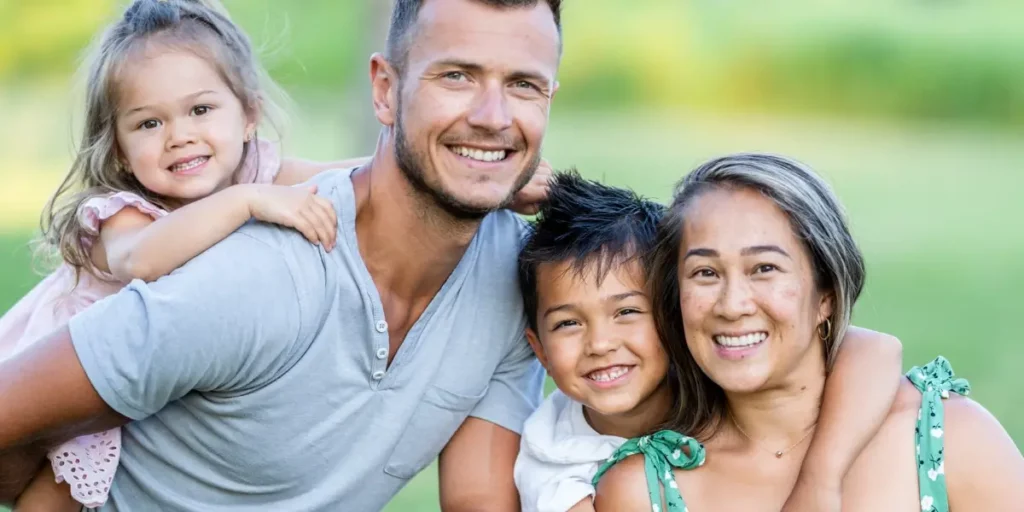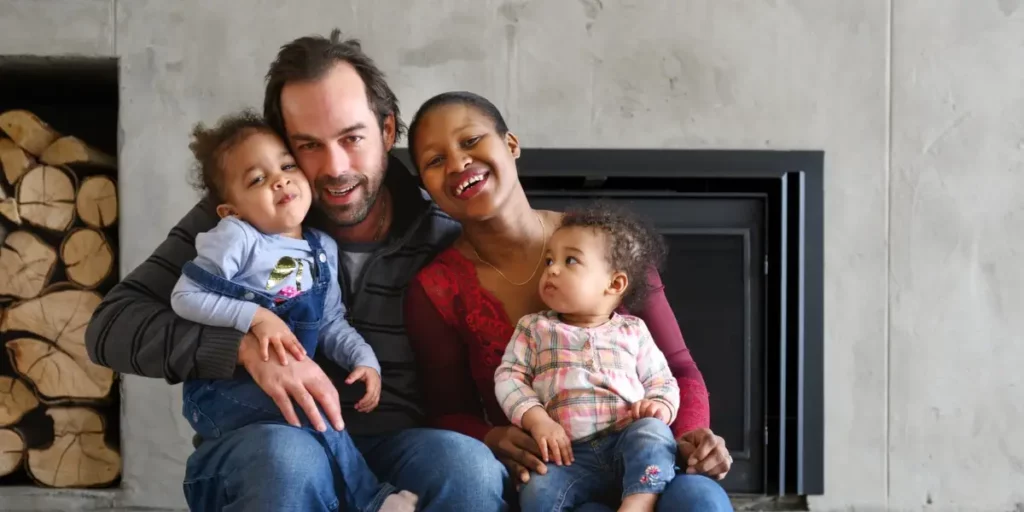
Raising a biracial child can be a unique and rewarding experience, but it also comes with its own set of challenges.
For instance, biracial kids often grow up feeling like they don’t quite fit in with either of their cultures. They may struggle to identify with either of their parents’ ethnic backgrounds, or they may feel like they are caught between two worlds.
Being biracial can be difficult for children, but it can also make them incredibly well-rounded and understanding of people later in life. Read on to learn more about the unique challenges and rewards of raising biracial kids.
What Are Biracial Kids?
Biracial kids are children who have parents of two different races. In the past, biracial children were often referred to as “mixed race” or “multiracial.” Today, the term biracial is more commonly used, as it implies that both sides of the child’s heritage are equally important.
While biracial kids comprise a small percentage of the population, this number is growing. Many different combinations of races can result in a biracial child. The most common combination is black and white, but biracial children can also have one parent who is white and one who is Asian, Latino, or of mixed race.
No matter what combination of races biracial kids have, they often face unique challenges that other kids don’t. For example, biracial kids may not feel like they fit in with either side of their family.
Other kids may also tease them for being different. But there are also many rewards to being biracial. Biracial children often have a rich heritage and can learn about and celebrate two cultures.
What are the Most Common Challenges That Biracial Kids Face in Today’s Society?

As mentioned, there are unique challenges that biracial kids face. In many cases, these challenges result from discrimination or feeling like they don’t fit in with either race. Below are some of the most common challenges biracial kids face:
1. Lack of Representation
One common challenge that biracial kids face is a lack of representation. This can be in the media, books, or everyday life. It can be difficult for biracial kids to find role models or see themselves represented in the world around them.
This lack of representation can lead to feelings of isolation and not belonging. It’s important for biracial kids to know that they are not alone and that other people like them are out there.
2. Microaggression
Another challenge that biracial kids often face is microaggressions. Microaggressions are small, everyday acts of racism or discrimination. They can be intentional or unintentional, but they all add up to create a feeling of not being good enough or not belonging.
Some examples of microaggressions biracial kids might face include being:
- Told they are “exotic” or “mixed” as if they were a piece of property
- Asked about their “real” race or ethnicity
- Told that they are not “black enough”, “white enough”, “Asian enough” and so on.
These microaggressions can be hurtful and make biracial kids feel like they have to choose one race over the other.
3. Identity Issues
Biracial kids are also more likely to struggle with identity issues. This is because they often don’t feel like they fit into one racial category or the other. They might feel like they are “too black” for the white kids and “too white” for the black kids.
This can lead to a lot of confusion and inner turmoil. Biracial kids need to know that they can be proud of both sides of their heritage. This is something that can be celebrated, not something to be ashamed of.
What Can Parents Do to Help Their Biracial Kids?
There are a few things that parents can do to help their biracial kids navigate the challenges they face. Below are some tips on parenting biracial children the right way:
1. Talk About Race and Identity with Your Kids
One of the most important things parents can do is talk to their kids about race and identity. It’s important for biracial kids to feel comfortable talking about their heritage and what it means to them. This can be a difficult conversation to have, but it’s an important one.
2. Encourage Your Kids to Be Proud of Their Identity
It’s important for biracial kids to be proud of their cultural identity. Help them understand that they are special and unique. Encourage them to celebrate their heritage and its history and learn about their culture.
3. Teach Your Kids How to Respond to Racism
Sadly, racism is still a reality in our world today. Biracial kids must know how to deal with racism if they encounter it. Teach them to stand up for themselves and others who may also be experiencing racism. Make sure that they respond properly to any racist remark, especially if it’s about their skin color.
4. Establish the Importance of Cultural Heritage
It’s crucial for biracial kids to understand the importance of their cultural heritage. Help them learn about their culture and traditions. Encourage them to celebrate holidays and traditions that are important to their heritage.
5. Encourage Your Kids to Be Tolerant and Understanding
One of the most important things that parents can do is teach their kids to be tolerant and understanding of others. Biracial kids need to understand that everyone is different, and that’s what makes us special. Help them to see the beauty in diversity.
These are just a few things parents can do to help their biracial kids. It’s important to remember that every child is different and will navigate these issues in their own way. Just be there to support and guide them through it.
What Are the Most Common Challenges That Parents of Biracial Kids Face?

Biracial kids are not the only ones who can face challenges related to their identity.
In fact, parents of biracial children can also face unique challenges. Here are some of the most common ones:
1. Dealing with Other People’s Reactions
One of the most common challenges that parents of biracial kids face is dealing with other people’s reactions to their child’s appearance. People may stare at the child or make comments about their features.
This can be frustrating and even upsetting for both. After all, it can be frustrating to have to constantly explain your child’s appearance to others.
In addition, some people may make negative or hurtful comments about the child’s appearance. This can be especially difficult to deal with.
It is important to remember that these comments are usually not about the child but are a reflection of the person making them.
2. Helping Your Child Find Their Identity
Another common challenge for parents of biracial kids is helping their child find their identity. This can be especially difficult if the child’s parents are of different races themselves.
For example, a black father and a white mother may not be sure how to raise their biracial child. They may be unsure what traditions to teach them or what culture they should identify with.
This can be a difficult and confusing time for both the parent and the child. However, it is important to remember that there is no right or wrong answer. The most important thing is that the child feels comfortable and loved.
3. Dealing with Racism
Unfortunately, racism is still a reality for many people. This includes the mom and dad of biracial kids. Some parents may have to deal with racism from both sides.
For example, a black mother and a white father may be treated differently by their families. In addition, they may face racism from strangers or even their friends or child’s school.
This can be a difficult and emotional experience. However, it is important to remember that racism is not the child’s fault. The child is not responsible for the actions of others.
What are the Rewards of Raising Biracial Children?

Despite the challenges, there are also many rewards to raising biracial kids, such as:
1. Raising Resilient Kids
One of the main rewards of raising biracial children is that they tend to be more resilient than other kids. This is because biracial children are used to dealing with different types of people and situations. They learn to adapt quickly, making them more flexible in the long run.
2. Raising Tolerant Kids
Raising biracial children also teaches them to be more tolerant of others. This is because they are exposed to different cultures and races at a young age. As a result, they learn to respect and appreciate people from all walks of life. This is a huge advantage because it allows them to build strong relationships with others.
3. Encouraging Diversity
Another great thing about raising biracial kids is that it encourages diversity. You are promoting a more inclusive society by teaching your children to accept and embrace people from all cultures. This is vitally important in today’s world, where racial tensions are running high.
4. Producing Unique Kids
Last but not least, biracial kids are simply unique. There is no other group of people like them, which makes them special and interesting. This is something that you can be proud of as a parent.
What Are Some Things That Biracial Kids Should Be Proud Of?
Being a biracial or multiracial child comes with a lot of unique challenges and rewards. One of the most important things for them is to be proud of who they are. Here are some things that these kids should be proud of:
1. They Have Two or More Cultures to Identify With
One of the great things about being biracial or multiracial is that children have two cultures or more to identify with. This can give them a richer and more well-rounded view of the world. It also means they have a greater chance of finding a community they feel part of.
2. They’re More Open-Minded
Since they are exposed to two or more different cultures, they tend to be more open-minded than other kids. They’re used to hearing different points of view and seeing things from different perspectives. This can make them more tolerant and understanding of others.
3. They’re Unique
Biracial and Multiracial children are one of a kind. They have a unique mix of cultures that makes them special and interesting. This can be a great strength, setting them apart from the crowd.
4. They Have Support from Both Sides
Since they have parents from two or more different cultures, they usually have the support of both sides. This can be a huge advantage, allowing them to benefit from the best of both worlds.
5. They Are Often Multilingual
Biracial and Multiracial kids often have the advantage of being able to speak two or more languages. This is a valuable skill that can open up a lot of doors in life. For example, it can make travel and communication much easier because they’ll be able to communicate with a wider range of people.
Conclusion
All in all, being biracial comes with many unique challenges and rewards. The most important thing for biracial kids is to be proud of who they are.
Understanding and celebrating their differences can lead to rich and fulfilling lives. Therefore, parents of biracial children should learn as much as possible about their child’s cultures and heritages.
With this knowledge, they can help their children navigate the challenges of being biracial in a way that leads to happiness and success.



Leave a Reply